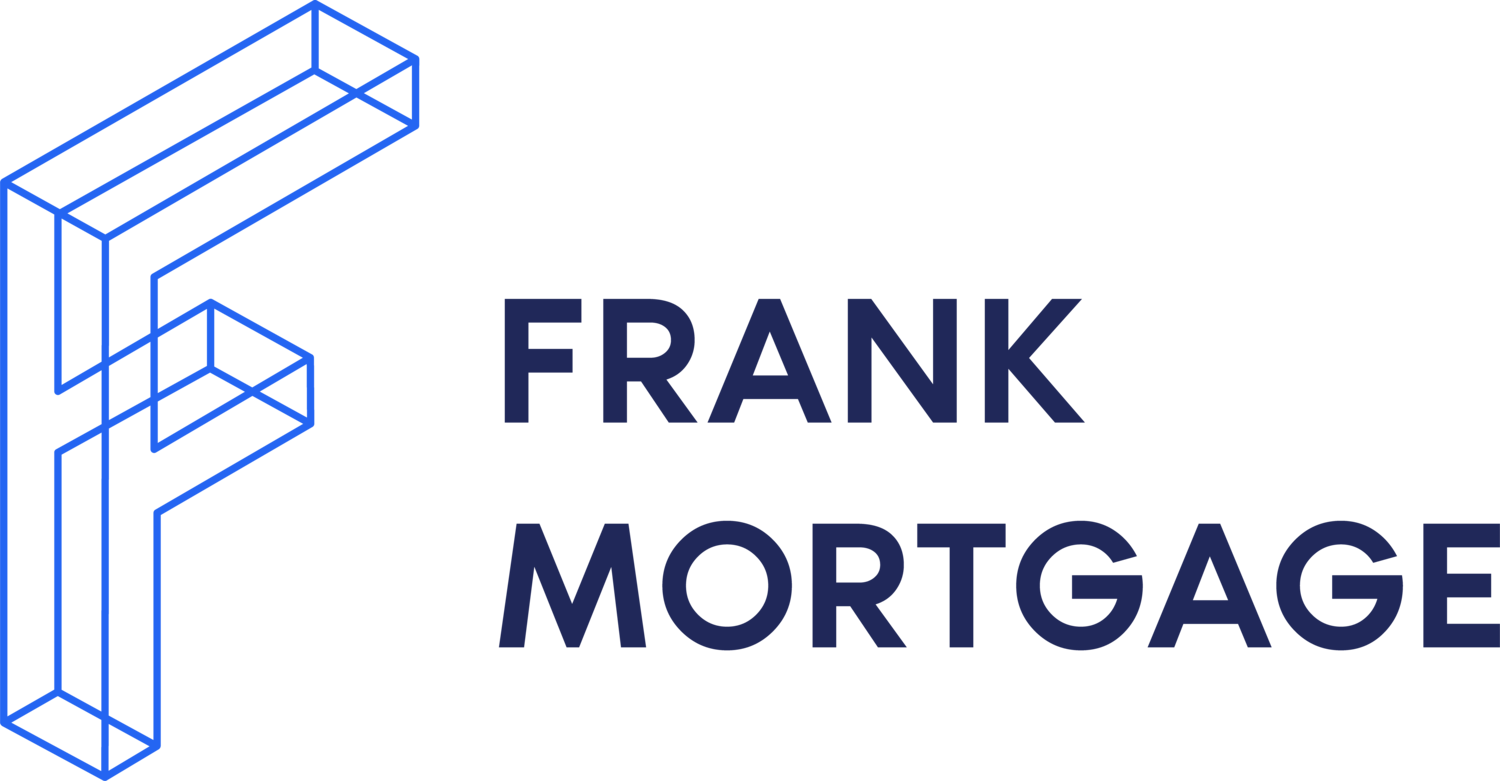Renewing Your Mortgage at a Higher Rate?
Here's What You Can Do

As your mortgage renewal approaches, you might be facing the reality of higher interest rates. The historically low rates of previous years gave way to a rising rate environment, impacting monthly payments for many homeowners. While rates have declined recently, they remain higher than they were three to five years ago. At Frank Mortgage, we are committed to helping you understand your options and make informed decisions during this pivotal time.
Understanding the Impact of Higher Mortgage Rates
Variable-rate mortgage holders have been riding the rate roller coaster for the past three years and may now prefer to lock-in a fixed rate to remove that kind of risk. Variable mortgage rates remain slightly higher than fixed mortgage rates so renewing into a fixed-rate mortgage might even reduce your monthly payments. The biggest issue at renewal will be for those with fixed-payment variable-rate mortgages where a borrower may be required to make a lump sum payment to bring their amortization back in-line or commit to an increased mortgage payment on renewal to do the same.
For existing fixed-rate mortgage holders who took out a mortgage three to five years ago at historically low rates, renewing at today's higher rates could lead to a noticeable uptick in your monthly obligations. But don’t panic – if your renewal rate is double your current mortgage rate, it does not mean your mortgage payment will double. Let’s look at the math:
| Mortgage Balance | Mortgage Rate | Monthly Payment | |
|---|---|---|---|
| Current Mortgage | $400,000 | 2.19% | $1,731 |
| Renewal Mortgage | $400,000 | 4.30% | $2,170 |
As the example above shows, for a $400,000 mortgage with a current rate of 2.19%, renewing at a new rate of 4.30% would increase the mortgage payment by $439. While the rate in this example almost doubles, the payment increases about 25%. This is still a material increase that a mortgage borrower would have to deal with, but it is not as fearsome as a more than doubling of the rate might make you think.
Strategies to Manage Increased Mortgage Payments
1. Start the Renewal Process Early
Initiating discussions about your mortgage renewal well before the maturity date provides ample time to explore various options. This proactive approach allows you to assess your financial situation, research current market rates, and negotiate terms that align with your goals. Waiting until the last minute may limit your choices and bargaining power.
2. Assess Your Financial Situation
Take a comprehensive look at your current finances. Evaluate your income, expenses, debts, and any changes since your last mortgage term. Understanding your financial health will help determine what you can afford and identify any adjustments needed to accommodate higher payments.
If the mortgage renewal might lead to financial stress that you cannot bare, be upfront about this with your lender. Lenders will try to work with stressed borrowers and can sometimes provide flexibility to help you manage your situation. The worst thing to do is hide this from your lender and then only reveal it after you have started to miss payments. Get in front of any issues.
3. Consider a Mortgage Switch
If your current lender's renewal offer isn't competitive, exploring options with other lenders could be beneficial. Even if you think the renewal offer is competitive you should look around for comparable market rates to be sure. A mortgage switch to a new lender might provide access to better rates or terms that suit your needs. If you have been unhappy with your current lender, renewal presents an opportunity to find a lender that is a better fit, be it for more flexible prepayment options, more fair prepayment penalty calculations (the big banks are notoriously bad for this), mortgage portability or just better service. However, be mindful of any associated costs or fees with making a switch.
4. Explore Mortgage Refinancing Options
Refinancing involves renegotiating your mortgage terms, which could include extending the amortization period to lower your monthly payment or consolidating other debts into your mortgage. Extending your amortization may provide immediate relief, but it is essential to consider the long-term implications, such as paying more interest over time. We are seeing more customers looking to consolidate debts. The lowest rates you can borrow are for mortgages secured on your home. It is a smart move to consolidate higher rate credit card, auto and other debs into a mortgage to reduce your cost of servicing those debts.
5. Utilize Mortgage Prepayment Privileges
If your financial situation allows, making lump-sum payments toward your mortgage principal can reduce the overall amount of interest paid and shorten the amortization period. Renewing with a lower balance will lead to lower payments on the renewed mortgage. Most mortgages offer prepayment privileges that enable you to pay extra without penalties.
6. Consult with Mortgage Professionals
Navigating a rising rate environment can be complex. It can also be difficult to uncover all the available mortgage alternative on your own. Engaging with mortgage experts, like our team at Frank Mortgage, can allow you to see real product choice while providing personalized advice tailored to your situation. We can help you understand the nuances of different mortgage products and identify strategies that align with your financial objectives.
How Frank Mortgage Can Assist You
At Frank Mortgage, we prioritize transparency and customer-centric solutions. Our platform allows you to compare offers from Canada's top mortgage lenders in one place, ensuring you have access to the best rates and terms available. We are the one-stop shop where you can see a variety of rates and mortgage products available and get your transaction done in a stress-free environment. Tell us what you need, and we do the work. We understand the challenges posed by rising interest rates and are here to guide you through the renewal process with unbiased advice and support.
Conclusion
While renewing your mortgage at a higher rate presents challenges, it's also an opportunity to reassess your financial goals and mortgage strategy. By starting early, evaluating your options, and seeking professional guidance, you can navigate this transition effectively and turn your mortgage renewal into an opportunity. Remember, at Frank Mortgage, we are dedicated to helping you find the mortgage solution that best fits your needs.
For personalized assistance with your mortgage renewal, contact Frank Mortgage at
1-888-850-1337 or visit www.frankmortgage.com.
About The Author

Don Scott
Don Scott is the founder of a challenger mortgage brokerage that is focused on improving access to mortgages. We can eliminate traditional biases and market restrictions through the use of technology to deliver a mortgage experience focused on the customer. Frankly, getting a mortgage doesn't have to be stressful.
Related Posts






